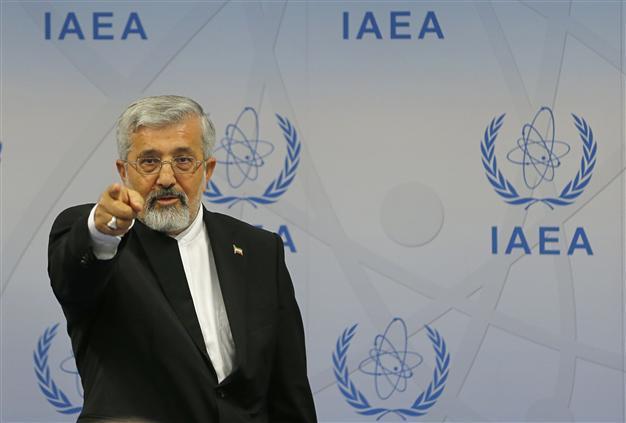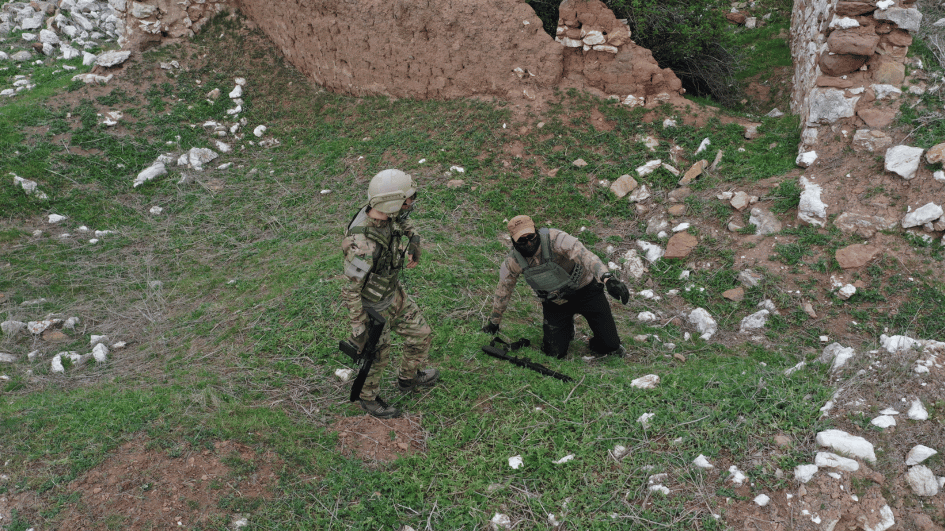No breakthrough in nuclear talks with Iran: UN
VIENNA - Agence France-Presse

Iran's envoy to the International Atomic Energy Agency (IAEA) Ali Asghar Soltanieh gestures during a press conference at the 56th International Atomic Energy Agency (IAEA) General Conference at the IAEA headquarters in Vienna on September 17. AFP photo
Nuclear talks between Iran and the UN atomic agency failed yet again May 15, as a top US diplomat said she expected the IAEA to report Tehran to the UN Security Council soon.The IAEA announcement came just as EU foreign policy chief was due to meet Iran's chief nuclear negotiator in Istanbul for the first time since failed six-party talks in April.
"We could not finalise the structured approach document that has been under negotiation for a year and a half," the International Atomic Energy Agency's chief inspector told reporters.
"Our best efforts have not been successful so far," Herman Nackaerts said, adding that no new date for another meeting had been set.
Iran's envoy in the more than eight hours of "intensive" talks in Vienna, Ali Asghar Soltanieh, was characteristically more upbeat, saying that the next meeting would see a deal finalised.
"The aim of this ... is to bridge the gaps towards a conclusion of the text by the next meeting," he told a joint press briefing.
The IAEA was pressing Iranian officials to grant access to sites, documents and scientists involved in Tehran's alleged efforts to develop atomic weapons, mostly before 2003 but possibly ongoing.
Iran says the IAEA's findings are based on faulty intelligence from foreign spy agencies such as the CIA and Israel's Mossad -- intelligence it complains it has not even been allowed to see.
Nine rounds of talks since the publication of a major IAEA report in November 2011 have produced no breakthrough.
IAEA will toss in the towel: US diplomat
Wendy Sherman, the head of the US delegation in parallel six-party talks with Iran, meanwhile indicated in Washington that patience was wearing thin over the lack of progress between Tehran and the IAEA.
"At some point, the director general of the IAEA will have to return to the (UN) Security Council and say 'I can go no further; there has been no response; you have to take further action'," she told Senate Foreign Relations hearing.
"Whether that will happen this June or whether that will happen in September, I'm not sure. "But there will come a point at which all of the international community, all of the Security Council will have to confront that the IAEA is not able to move forward in finding out the dimensions of Iran's nuclear programme." Parallel diplomatic efforts meanwhile between Iran and six major powers -- the US, China, Russia, Britain, France and Germany -- are focused more on Iran's current activities, most notably uranium enrichment.
Enriched uranium is at the heart of the international community's concerns since it can be used not only for peaceful purposes such as power generation but also -- when highly purified -- in a nuclear bomb.
The latest round with the "P5+1" in Almaty, Kazakhstan, in early April ended with lead negotiator and EU foreign policy chief Catherine Ashton saying the two sides remained "far apart" despite the P5+1 having sweetened an earlier offer.
Ashton was due to meet Iran's chief nuclear negotiator in the talks, Saeed Jalili, for a working dinner in Istanbul on May 15 evening.
The UN Security Council has passed multiple resolutions calling on Iran to suspend all uranium enrichment, imposing several rounds of sanctions on the Islamic republic.
Additional US and EU sanctions last year began to cause major economic problems by targeting the Persian Gulf country's vital oil sector and financial system.
Israel, the Middle East's sole if undeclared nuclear-armed state, meanwhile has refused to rule out military action on Iran - as has US President Barack Obama.
Efforts to resolve the long-running dispute are complicated by the fact that Iran goes to the polls on June 14 to choose a successor to President Mahmoud Ahmadinejad, with Jalili himself among the hopefuls.
Both meetings come ahead of the IAEA's latest quarterly report next week, which is expected to show that Tehran has defiantly continued to expand its nuclear activities.
















